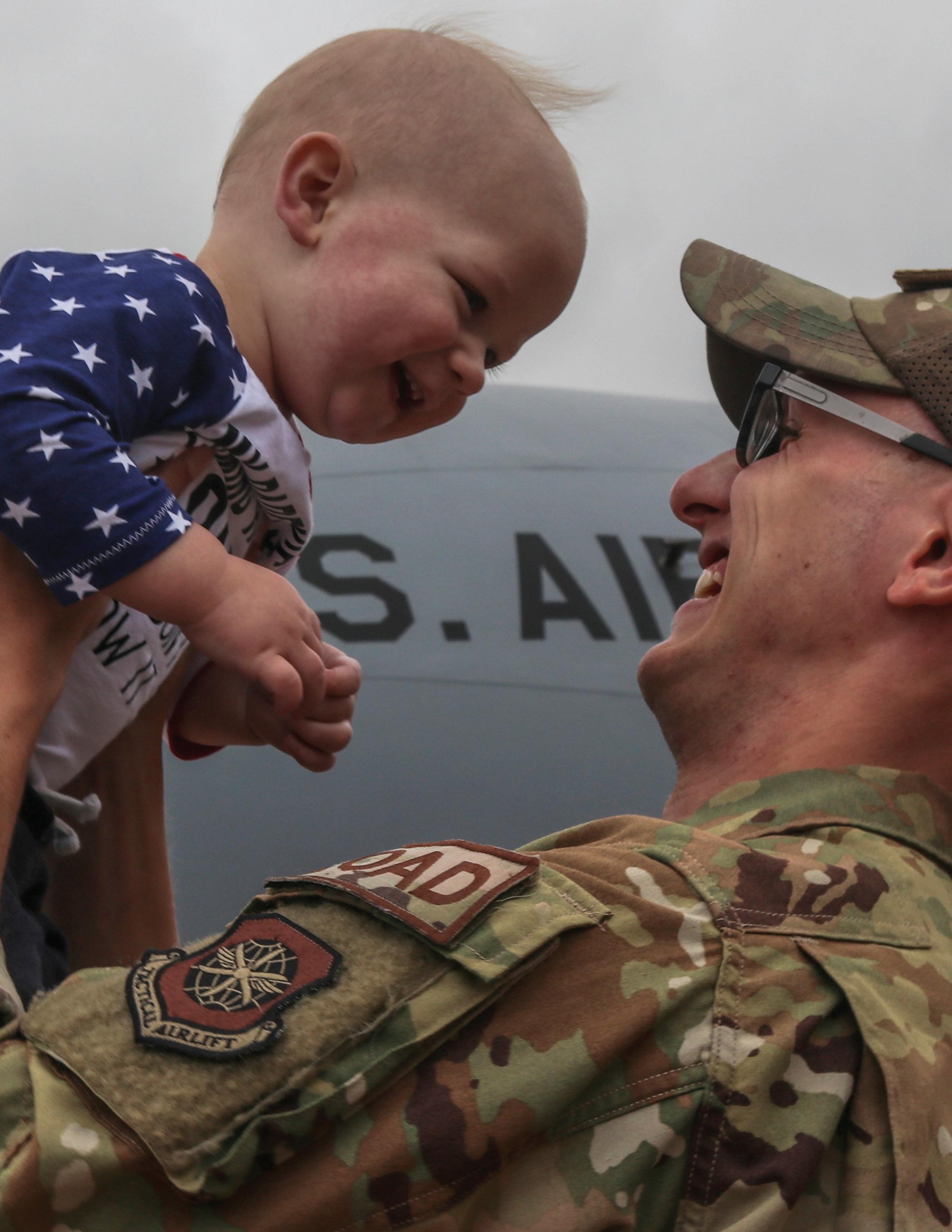






Savannah Stephens is a proud Air Force pilot wife, Reserve Public Affairs Officer, and a Department of the Air Force Civilian, currently serving as the Public Affairs Advisor at Hurlburt Field, Fla.
She first found her love for AFA in 2015 as an intern in the communications department and at the Air Force Memorial.
To read Savannah’s full biography, go to "Meet the ENGAGE Team" on page 30.
The following publication details the perspectives and opinions of military spouses across service branches in alignment with the release of the 2025 Inaugural Military Spouse & Veteran Spouse Wellness Survey by InDependent Wellness Summit and University of Texas at Austin.
After wearing our uniform for more than three decades and standing shoulder to shoulder with AFA, an association of more than 125,000 Airmen, Guardians, veterans, families, and supporters, I find myself constantly reflecting on the extraordinary fabric of our community. The stories of military spouses and veterans are stories of quiet strength (sometimes, not-so-quiet), generational sacrifice, and unwavering devotion to a cause greater than ourselves.
Military life asks a great deal of all who associate with it. It’s not just the service member who serves; it's the spouse holding things together during separations, the night shift, or weekend duties and alerts; the child adapting to yet another new school; and the veteran navigating the complex road home. Your strength, resilience, and unwavering commitment often goes unseen, but at AFA, we are keenly aware of the road you travel.
At AFA, we believe in supporting the whole military family—not just while in uniform, but throughout every chapter that follows. That’s why we invest in programs like United Forces & Families. We also champion wellness initiatives and partner with others across the country who are equally committed to your well-being.

Wellness isn’t just physical. It’s mental, emotional, relational, and spiritual. It’s about making sure military families have access to the support, resources, and community they need to thrive. Not just to get by, but to live well.
To every spouse, veteran, caregiver, and child: Thank You! Your service and sacrifice matter and makes a difference.
I look forward to continuing this work together.
BurtBurt Field President & CEO
AFA’s mission is to promote dominant U.S. Air and Space Forces as the foundation of a strong National Defense; to honor and support our Airmen, Guardians, and their Families; and to remember and respect our enduring Heritage.
To unite forces and families, strengthening quality of life for Air and Space communities.
A culture where strong families continually build stronger forces.
Inclusion | Family | Community | Education | Advocacy
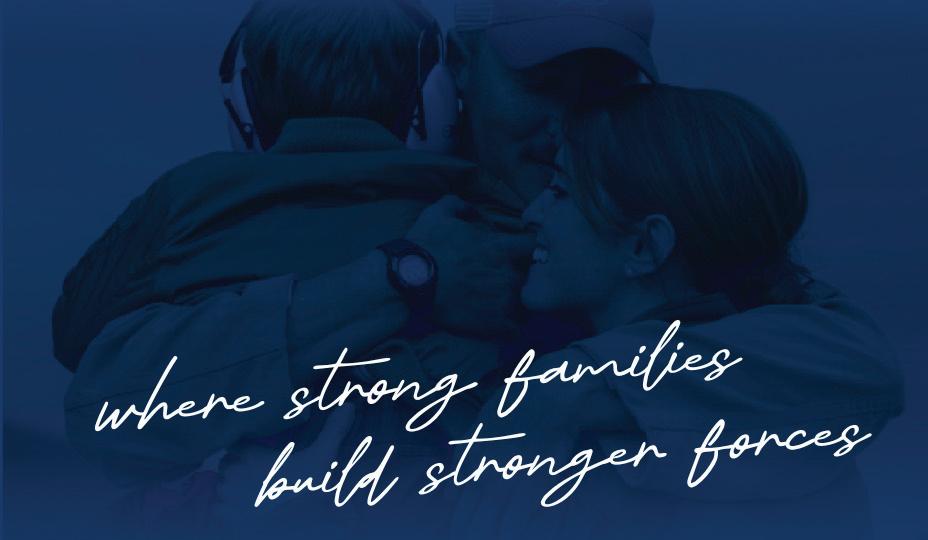
“I don’t think I can do this anymore.”
Those were the first eight words I heard on the other end of the phone. I was sitting on the couch of our Airbnb in San Antonio with my five-month-old son, when my husband called and told me I needed to meet him on base as soon as possible.
No questions were asked. I quickly got our son buckled in and rushed to meet my husband.
I sat across from him as he divulged his mental health struggles. The pressures of training. The pressures of having a young family. The pressures of wanting to be the best — and feeling like he was drowning.
Three months prior, we had packed everything we owned and moved 760 miles across the country. After multiple deployments and extended TDYs between the two of us with two young children, I had recently chosen to separate from Active Duty. This was not an easy decision, but it was the right one for our family to avoid future potential PCS-related separations. We put our home up for rent, and we said goodbye to our friends at Hurlburt Field to start our new life in the Alamo state believing this was the first of many moves following the completion of my husband’s training.
I felt like we were doing everything right, but I had somehow missed my husband’s struggle amidst the chaos of our lives.
My mind raced through questions like “What does this mean for his flying career?”, “What could I have done better?”, “How do I support him at his most vulnerable?”, but mostly, “How did I miss this?”
The next six weeks passed in slow motion. My husband sought out mental health therapy. I went into “protective mama bear” mode with our two kids. I desperately wanted my husband to feel better and be proud of who he was, but I wanted to shield our kids from any turmoil. No one could had answers for what this could mean for our family.
I started carrying a weight on my shoulders that I wouldn’t recognize until months later. I shoved my feelings and anxiety into an emotional backpack that only grew heavier with time.
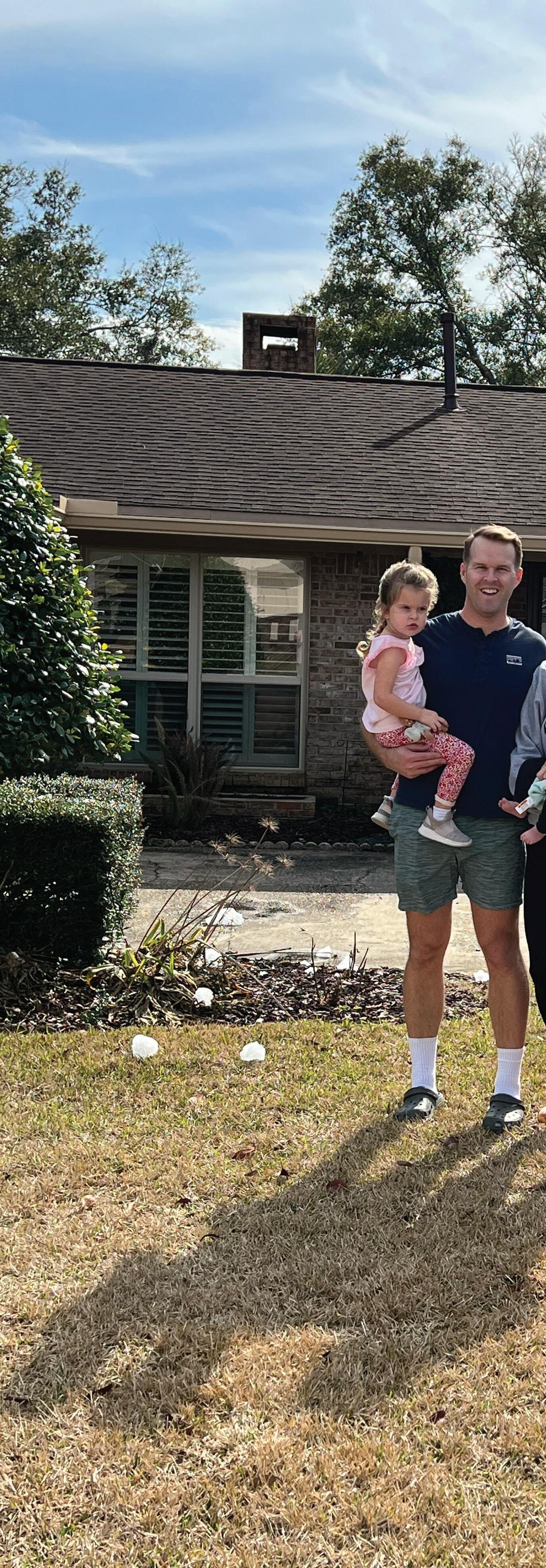

We got less than a week’s notice that our family would return to Florida. We had no house, no daycare for the kids, and I had no job. I kicked myself into high gear scrambling for any sense of control or peace I could grasp.
I searched for rental homes, called every daycare I could find, prayed that a job opportunity would open up, and I could restore a sense of normalcy.
In time, things got better. My husband received incredible support and is in a much better place today, two years later, both mentally and in his career. Our family landed softly back in Florida (and we even got both kids and our newborn in a CDC once my employment was confirmed). What a journey it has been!
Looking back, I can see that in my husband’s toughest season of life, I unknowingly lost myself. I let myself go emotionally, physically, and spiritually. I put everyone else first, and I soon began to feel it. I grew impatient and easily triggered, whether by my children or at work. I felt a deep sense of loss over my own deteriorating physical fitness.
I’ve always been one of those, “I’ve got this,” kind of women ... and then suddenly I wasn’t.
Seeking therapy for my own challenges turned out to be one of the best things I have ever done for myself. I became a better mom. A better wife. A more intentional friend. I was able to process military life better than I had before and finally understood the emotions we all struggle with while knowing how to navigate them.
It taught me that I don’t have to be the strongest person in the room. It’s not cool to pretend you can do it all when you’re mentally on a life raft in rough seas. This chapter of our life taught me the importance of seeking community and finding like-minded women to walk alongside.
Military life isn’t for the faint of heart; it sure isn’t something we can do alone. I share my story to encourage others. Even when people look the most put together on the outside, things aren’t always running smoothly on the inside. When the going gets tough, don’t carry the burden alone. You’ve. Got. This. (And if you don’t, there are people and resources to help you navigate through tough times).

Savannah Stephens Public Affairs Advisor, Hurlburt Field
Evie King’s journey to becoming a leading advocate for military spouse wellness began in 2008 after saying a tough goodbye to her then-boyfriend in the National Guard. An “Army brat” herself, Evie vowed never to marry into the military, but fate had other plans.
After three years of navigating a long-distance relationship with her Soldier, they married in 2011. Since then, they’ve gone through six changes of station and three deployments together, including one particularly isolating assignment in South Korea, where Evie felt disconnected and overwhelmed, despite having a supportive husband and a stable job.
“My well-being was really, really low in South Korea,” said King, who now serves as the president of InDependent, a milspouse-led nonprofit dedicated to building community and supporting the health and wellness of other military spouses.
“I knew something wasn’t right when my husband, who was a company commander working 10- to 12-hour days, was in a better head space than I was.”
She is not alone.
More than 50 percent of military and veteran spouses surveyed by InDependent and the Institute for Military and Veteran Family Wellness (IMVFW) cited “finding community and/or friends” as a major challenge of military life. The second biggest challenge selected from a supplied list of 21 options, ranging from the ability to afford meals to preparing for deployment, was “finding social/peer support.”
The inaugural Military & Veteran Spouse Survey, a collaborative research initiative between InDependent and IMVFW, looked at eight dimensions of wellness— emotional, intellectual, physical, occupational, spiritual, social, financial, and environmental. Respondents were least satisfied with their emotional, physical, and social wellness, and most satisfied with their emotional, spiritual, and intellectual wellness.
Almost a quarter of spouses surveyed cited the ability to access mental healthcare for themselves
as a current challenge. Spouses with education up to an associate’s degree and spouses of service members in the National Guard or Reserve experienced a higher level of anxiety and caregiver burden. Air Force spouses, on the other hand, averaged the lower levels of anxiety, depression, and caregiver burden compared to spouses of other military branches. Over half of the spouses surveyed indicated levels of anxiety and depression at rates higher than civilians, when compared to the most recent 2022 National Health and Nutrition Examination Survey.

“When you take care of the military spouse, you’re taking care of the entire family.”
Evie King
President of InDependent & 2023 AFI Military Spouse of the Year
The survey included two measures aimed at assessing spiritual wellness and sense of purpose: the Spiritual Wellness subscale from the National Wellness Institute’s Wellness Assessment and the Purpose of Life Test. On average, the spouses surveyed scored moderately high on both, more than 70 percent, with the majority of spouses indicating their life was “purposeful and meaningful” and that they had “clear goals and aims.”
The complete survey results will be released June 27 during the United Forces & Families ENGAGE: Wellness on the Homefront event at the Air & Space Forces Association’s headquarters in Arlington, Va.
Since 2013, InDependent has evolved into a robust 501(c)(3) nonprofit organization with a mission to make wellness accessible and create opportunities for military
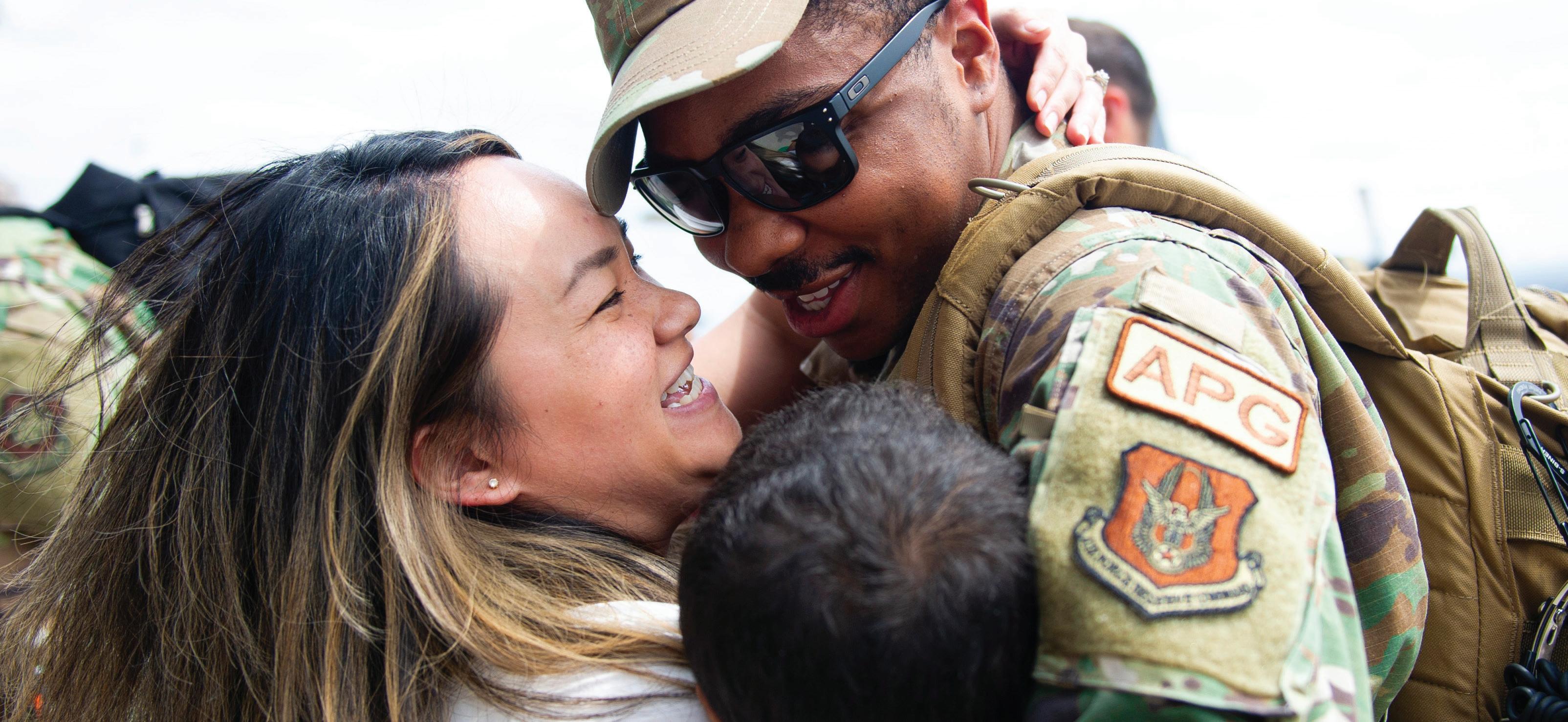
spouses to connect for friendship, accountability, and inspiration. The organization offers programs like the annual InDependent Wellness Summit, which has attracted more than 13,000 participants since its inception in 2015.
Evie, who was named the 2023 Armed Forces Insurance Military Spouse of the Year, emphasizes the importance of clear communication, team well-being, and adaptability— qualities essential in the ever-changing landscape of military life. Her commitment to these principles has been instrumental in sustaining InDependent’s impact, even as it operates primarily through volunteer efforts.
“You can’t be a wellness organization full of burnt-out volunteers,” she said. “We have specifically designed standard operating procedures for all of our volunteers to ensure we’re taking care of their needs as well.”

53.2%
More than half of survey respondents selected “finding community and/or friends” as a significant challenge as a military spouse.
When creating programming and resources, King and InDependent focus on the entire military family.
“When you take care of the military spouse, you’re taking care of the entire family,” Evie said.
Her story is not just about personal achievement; it’s about fostering a community where military spouses can find support, resources, and a sense of belonging. Through InDependent, she continues to empower others to prioritize their well-being, demonstrating that with the right support, military spouses can thrive amidst the unique challenges they face.
“I want military spouses to live their life to the fullest because you can’t wait for your service member to retire to start living,” said King. “And I hope that InDependent helps them do just that.”
Highlighted statistics accompanied by this symbol through this edition of ENGAGE are directly taken from the 2024 Military & Veteran Spouse Wellness Survey.

https://in-dependent.org
FB: @independentorg1
IG: @independentorg See the full survey by scanning this QR code.


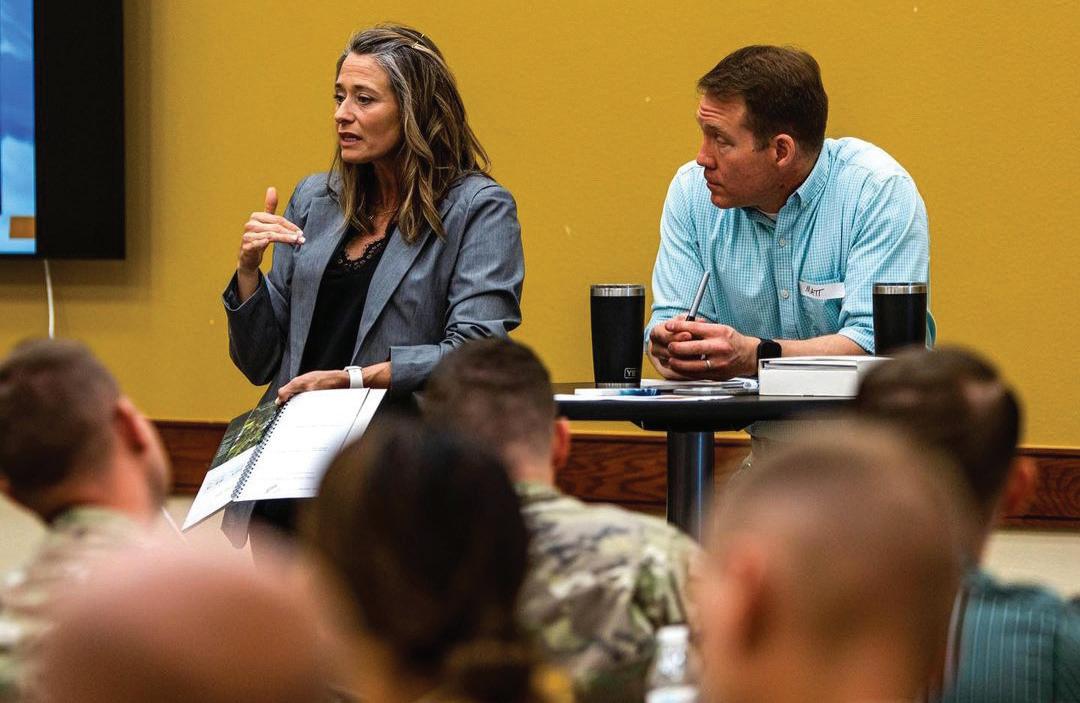
As service members and their families adjust to a postpandemic world, wellness has become a top priority and a growing challenge. Corie Weathers, a licensed professional counselor, Army spouse, and author of Military Culture Shift, has spent years traveling to installations across the country and listening to military families and leaders. Her insights reflect a community at a crossroads, where awareness of mental health is high, but access and connection are increasingly strained.
“We have this great awareness for wellness,” Weathers said, “but fewer people who can provide the practical help our families need.” According to Weathers, the demand for mental health care has skyrocketed in recent years,
driven in part by post-COVID stress and ongoing strains from global conflicts. But as more people seek help, a shortage of providers exacerbated by issues within the military’s healthcare system has left many without the support they need.
“I would say the biggest challenge we don’t want to admit is loneliness,” she said. “Gen Z is the loneliest generation to date, and I’d argue every generation is struggling. The older cohort is just as exhausted and isolating themselves.”
That isolation, she says, is rooted in a cultural shift. Service members and families once anchored by a tightknit community are increasingly disconnected. The causes are complex frequent moves, global unrest, and technology-driven distractions, but the result is the same: people feel alone, even when surrounded by others.
And yet, Weathers believes preparation can make a difference.
She recalls a 2021 encounter where a military spouse explained how she had proactively sought out a counselor for herself and her children before there was a crisis. That foresight stood out. “We want to be physically healthy before we have a problem,” Weathers said. “Mental health is the same way.”
Still, proactive care can be difficult to prioritize in a culture that often prioritizes mission over self. Weathers argues it comes down to self-worth.
“We all know what we should do: drink more water, sleep more, eat better. The question is, why aren’t we doing it?” she asked. “Do you value yourself enough to do the things you need in order to be well?”
A new kind of military family is also emerging, one shaped by global awareness, shifting priorities, and economic realities. According to Weathers, Gen Z service members are joining not for patriotism, but for financial security.
“They’ve never known a unified nation. They’ve only seen division,” she said. “Most of them are evaluating the military as they go. If they feel the institution isn’t taking care of them or their families, they’re willing to leave after their contract.” That stands in contrast to many military people from prior generations who may have joined for personal reasons, but stayed largely for duty and patriotism, rather than benefits. Should the institution adapt to meet the expectations of modern families? It’s not an easy answer, Weathers says.
“Do you value yourself enough to do the things you need in order to be well?”
On one hand, the Department of Defense was built to win wars, not to provide family services, healthcare, or housing. Over the years, many of those responsibilities have been privatized with mixed results. As a result, military families often bear the brunt of system failures.
“The military has done a great job creating programs and resources to support families,” Weathers said. “And at the same time, it’s not enough. The institution is stretched thin trying to do things it was never designed to do.”
Weathers argues this effects military readiness and the nation’s understanding of what it takes to ensure its own security.
“If the nation isn’t willing to support military families, the government is forced to do more. But it can’t do it all.”
Whether preparing mentally for the next deployment or deciding whether to stay in uniform, families are making decisions in a world that’s faster, louder, and more complicated than ever before.
“I keep asking, ‘Why aren’t we doing the things we know we need to do?’” Weathers said. “We’ve accepted this heightened state of stress as normal. But it’s not. And the longer we ignore that, the harder it becomes to take care of each other and ourselves.”
23.6%
reported challenges with accessing mental healthcare for themselves
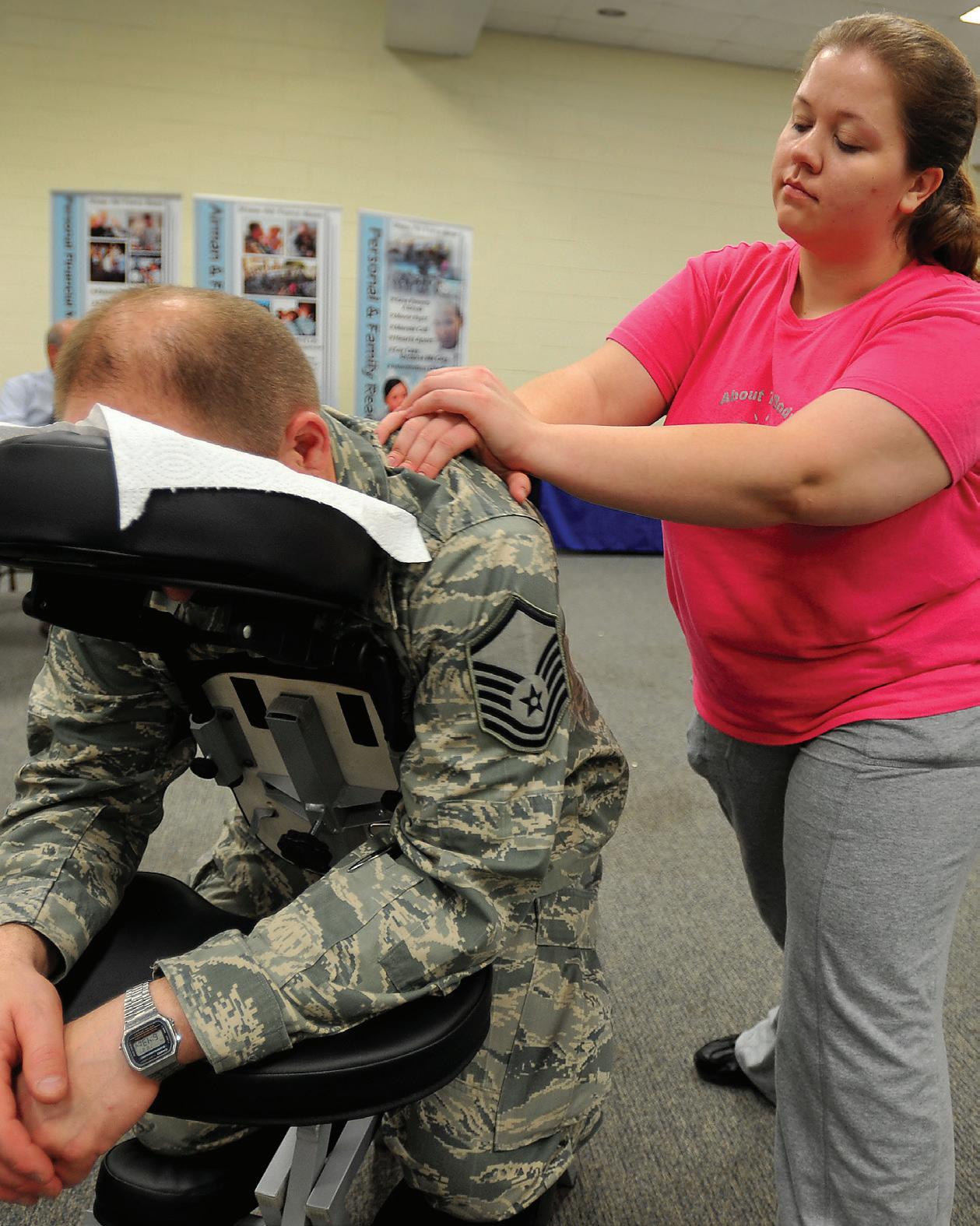
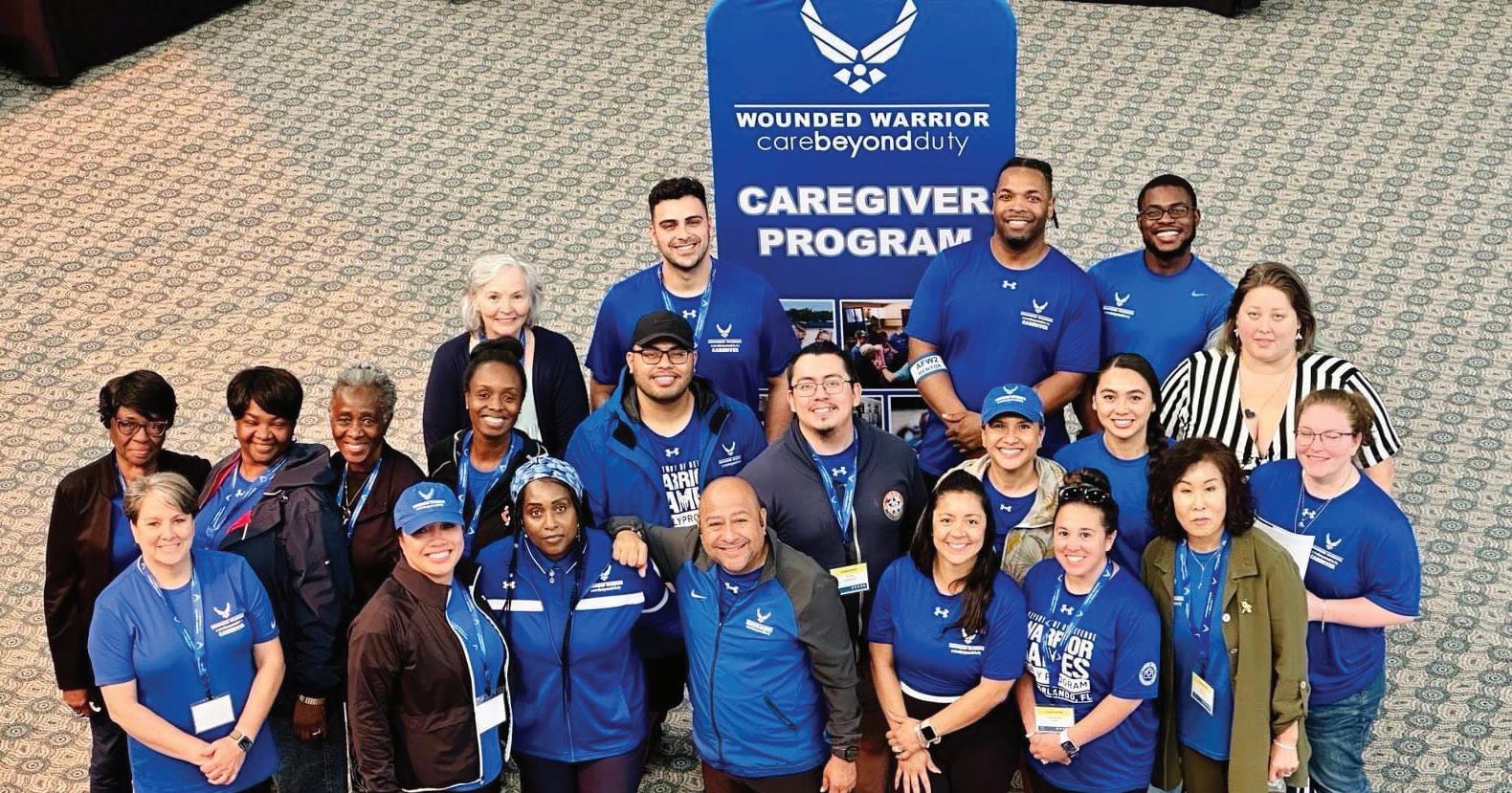
A caregiver is someone who steps up, often without warning, to shoulder the daily needs of another, all while continuing to manage their own life. Their strength can go unseen, their resilience unspoken, but their impact is immeasurable. In the military community, caregivers aren’t just helping someone heal; they’re holding entire families together.
Caregivers like Adriana Neri-Lin and Jennifer Bittner embody this vital, often invisible, role. They are spouses, mothers, advocates, and warriors in their own right. Their stories reflect the quiet heroism and deep emotional labor required of caregivers across the armed forces.
Adriana Neri-Lin, a caregiver with the Air Force Wounded Warrior Program (AFW2), supported her husband, an Explosive Ordnance Technician, as he struggled with Post-Traumatic Stress Disorder (PTSD) following multiple deployments. “He was charming and full of life,” she said. But over time, that brightness dimmed behind a wall of silence and anger.
“It was like walking on eggshells every day,” she said. Neri-Lin managed the household, parented their children, traveled with him to manage his panic attacks and night terrors, and carried the weight of caregiving alone.
Jennifer Bittner lives a different but equally demanding version of this story. An Army spouse, she is mother with three children enrolled in the Exceptional Family Member Program (EFMP), each with their own complex medical needs. Her days are filled with coordinating appointments, managing schedules, and navigating a healthcare system that’s often more confusing than helpful.
“I have sat by my son’s hospital bed after surgery and argued on the phone with our health insurance about getting a medication filled,” said Bittner. “I should’ve been worried about the pain my son was in and not arguing about medication, but unfortunately, that’s not how it always goes.”
Both women speak to the emotional toll of caregiving. Neri-Lin describes the loneliness and lack of recognition caregivers often feel.
“There’s a lot of support for the wounded warrior, as there should be. But people don’t always see the person standing next to them, trying to hold it all together.”
Jennifer echoed that sentiment, noting how caregivers are frequently expected to be “resilient without the right resources,” even when their plates are overflowing.
Their journeys as caregivers have grown as they’ve found community. Neri-Lin found that community in AFW2’s CARE events, retreats, and workshops that help caregivers and wounded warriors rebuild together.
“From the moment I walked in, I felt like I could breathe again. They saw me. They saw the caregiver,” said NeriLin.
For Bittner, it was connecting with other EFMP families and becoming an advocate for systemic change, through the non-profit Exceptional Families of the Military, in how military families with special needs are supported.
Both women have found their voices and are using them to advocate for others.
Neri-Lin now mentors other caregivers, sharing her experience and encouraging them to prioritize their own mental health. “We tend to think, ‘They went to war, not me,’ so we don’t give ourselves permission to feel overwhelmed or traumatized,” she said. “But trauma is contagious in a family. We all carry it.”
Bittner, too, became a fierce advocate, speaking out about the gaps in caregiver support and pushing for better resources.
“Working with Exceptional Families of the Military has been my saving grace,” she said. “I’ve been able to volunteer, put my words into action, and feel like I’m not only advocating for my family’s needs but other families as well in our community.”
Today, both women continue to live out the mission of caregiving with more tools, more support, and a renewed sense of identity.
Neri-Lin puts it best: “They helped me remember that I matter too. You can’t pour from an empty cup. And sometimes, the bravest thing you can do is ask for help.”
Caregivers are not just supporters; they are leaders, advocates, and survivors. They remind us that strength doesn’t always wear a uniform. Sometimes, it wears the quiet courage of someone who shows up every single day, for the people they love.
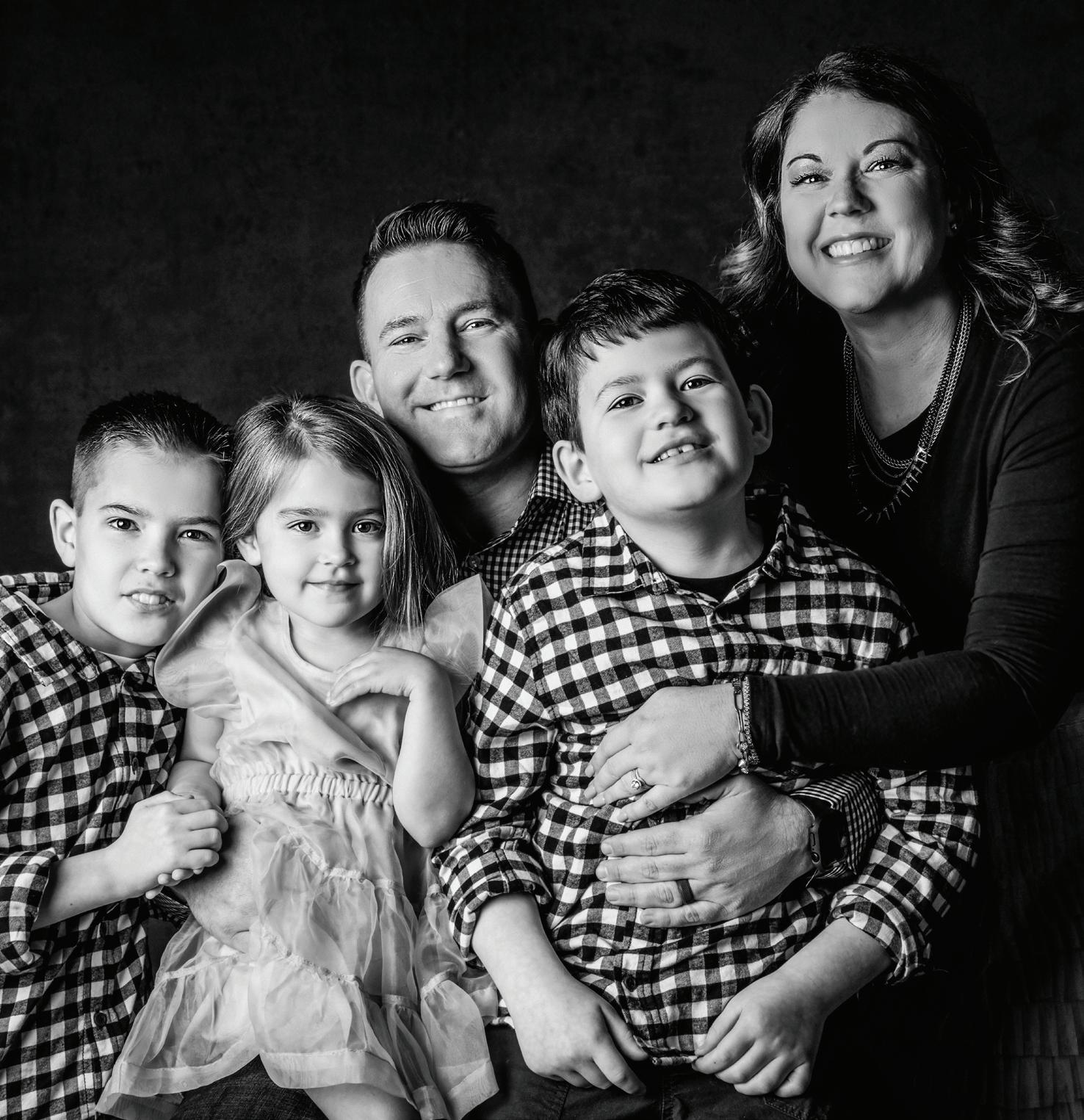
AFA created the Wounded Airmen & Guardians Program in 2011 and has worked closely with the Air Force Wounded Warrior Program (AFW2) to fund activities, broaden its reach, and fill in logistic gaps at rehabilitative events around the country ever since. At on-site CARE events, AFA hosts a “Caregiver Day” to treat the caregivers to respite care, mindfulness coaching, and team-building activities to improve their quality of life. Funded entirely by donations from AFA’s individual and corporate members, the Wounded Airmen & Guardians Program has provided more than $1 million in support to wounded warriors, caregivers, and their families since inception. To give today and support our hidden heroes, scan the QR code.
http://www.afa.org/WAGP
Andi Adams thought she had done everything right. As a military spouse and daughter of service members, she understood the unique demands of the lifestyle. She and her husband, Ben, an Air Force pilot, had spent years living intentionally, saving money, and preparing for the inevitable day when the military chapter of their life would close.
But no amount of planning could shield them from what came next.
In the early days of the COVID-19 pandemic, the Adams family moved to Texas—a new base, a new community, and no real support. At the same time, Andi’s mother became critically ill, throwing her into emotional turmoil.
“We didn’t know if my mom was going to survive,” Andi recalls. “We had zero support. I felt like I fell into a deep depression.”
Then came another blow: her husband contracted COVID-19, on top of a few other illnesses, and was hospitalized. What they thought would be a short stay turned into a nightmare. On the second day of his hospitalization, Andi got a call asking to establish his endof-life plans.
“That was the moment I truly realized how bad it was,” she said.
Isolated, terrified, and with no help from the base, Andi had to call a friend to fly in from across the country to assist.
The lack of community support in Texas was palpable. “We begged people to help,” she said. “No one came.”
Ben survived, but his military career was never the same. With limited options, he decided not to continue serving and they separated from Active duty in late 2022.

What followed was six months of no income for either of them. Andi had just left her job to start a business, planning to build it slowly while Ben finished his service. Instead, the business became their only financial hope in a matter of weeks.
“This wasn’t what we planned,” she said. “Six months is not enough time to grow a business that can replace a military salary.”
Still, they survived, but barely. Why? Because they had spent years saving.
“From the first military paycheck, we saved a percentage. We lived well below our means,” Andi said. “We went without, made sacrifices, and stayed disciplined. That’s the only reason we didn’t go under.”
Andi is now a passionate advocate for financial readiness, especially for military families facing separation. “We never stop facing crises. That’s just life. But being financially prepared gave us breathing room in our darkest season,” she said.
Today, their family is rebuilding and feeling stronger than ever, with Ben now on disability and their young son thriving. Andi still misses the military community deeply, but she hopes their story reminds others that the end of service doesn’t have to mean the end of stability.
“We were hit by one thing after another,” Andi says. “But we were never crushed. And that’s because we planned for the worst even when we hoped for the best.”
Military life is full of transitions: new assignments, cross-country moves, deployments, and, eventually, separation from service. Each change can bring financial stress, but with preparation and the right mindset, military families can build long-term financial wellness, no matter where the orders take them.
“The more you’re aligned on your values and goals, the easier it is to manage your budget intentionally,” said Hannah Wardenburg, Army National Guard Spouse and CEO of The Wealth Collaborative.
“Ask yourselves: What do we want our future to look like? Do we want a second career or a full retirement?
Tracking spending—through a notebook, budgeting app, or even a note on your phone—can help you identify habits, reduce unnecessary expenses, and set realistic goals. Even small changes, like cutting back on takeout or streaming services, can free up funds to build an emergency savings account or pay down debt.

When you know where you’re headed, your spending becomes more intentional. “
Financial readiness isn’t just about budgeting, it’s about being able to weather uncertainty, make intentional decisions, and plan for the future. Whether you’re new to military life or have weathered a few PCS moves, some key principles and tools can help families thrive financially.
The first step to financial wellness is simple: awareness.
“It starts with communication and alignment. Make it a habit to have regular conversations with your spouse about money,” says Wardenburg. “Understand how much is coming in, when you’re getting paid, and what’s going out. Especially with the unique structure of military pay, clarity around timing and benefits is essential.”
To prepare for the inevitable surprises, families should aim to build a transition fund early in their military journey. Living below your means—even when income feels stable—is essential. When one spouse’s income is inconsistent due to career changes or caregiving responsibilities, the flexibility that savings offer can make all the difference.
Active-duty families may also be eligible for special financial perks— such as waived fees on premium credit cards. Benefits can include streaming credits, retail discounts, and travel upgrades.
Financial readiness for military families isn’t a one-size-fitsall formula—it’s a combination of awareness, adaptability, and action. With every new duty station, promotion, or career shift, there’s a chance to take another step toward long-term financial security.
Wardenburg concluded, “The key is to get resourceful and not be afraid to think outside the box. Every extra dollar can become the foundation of your future security.”

23% Covering Living Expenses

17.7% Affordable Housing

14.9% Childcare

10.3% Affording Meals

Military families are known for their adaptability. Whether it’s navigating new duty stations, holding down the homefront during deployments, or juggling careers and kids amid constant change, their resilience runs deep. But that lifestyle can also take a serious toll on physical and mental health, which is why personal trainer and Army spouse Toby Ralph is on a mission to help families thrive, not just survive.
Toby isn’t your typical personal trainer. He’s a former first responder turned certified coach, holding credentials from both the National Academy of Sports Medicine and the International Sports Sciences Association, who carved out a career path not only to follow his passion but to support his Army wife and their son.
“It wasn’t just about fitness,” said Toby. “It was about taking a passion I had and making it into something that helped others.”
Like many military spouses, Toby faced a major challenge: career portability. When his wife’s orders moved them across the country, he needed a job that could move with
them. That’s when personal training, especially virtual coaching, became a game-changer.
“Being able to help people feel strong and confident in who they are—and making it work no matter where I am—was the perfect fit,” explained Toby. He now trains clients in-person and online, offering guidance tailored to the chaotic, ever-shifting lives of military families.
Toby knows firsthand how fitness can impact mental health.
“There’s something incredibly powerful about knowing you put in the work. You’re not just surviving the stress, you’re pushing back against it,” said Toby. “There are very few things in life that we are in control of. What you do with your body and what food you eat are things you can control, and seeing your hard work payoff is priceless.”
And that’s a message he shares with his clients. From new spouses adjusting to military life to service members struggling with motivation during
deployments, Toby’s approach is clear: Fitness should work for your life—not the other way around.
That mindset shift is critical.
“People feel guilty taking time for themselves,” Toby said. “But wellness isn’t a luxury—it’s a necessity.”
In an era of social media “fitspiration,” military families can easily fall into the trap of comparison. Ralph urges clients to focus on progress, not perfection.
“Everybody’s body is different. You don’t have to look like an influencer, you just need to feel better, move better, and live better.”
He encourages small, sustainable steps: “Go for a walk. Stretch. Move your body. Every bit counts.”
Toby is also honest about the emotional side of military life.

“There’s a lot of invisible sacrifice: career loss, identity shifts, isolation. Sometimes you don’t realize the toll until you’re in it.”
That’s why he believes physical wellness is more than just reps and sets. It’s reclaiming control, one habit at a time.
TOBY’S TIPS
1. Be flexible and keep it simple. “Schedules change, plans fall through. A full workout isn’t always realistic—but 10 minutes of stretching or a few pushups during naptime is better than nothing.
2. Eat with intention. “Fuel your body with food that feels good and works for your life. It’s about balance, not restriction.”
3. Ditch the guilt. “You don’t have to earn your rest or punish your body. Show up with compassion and consistency.
4. Turn everyday moments into movement. Walk the dog. Race your kids in the backyard. Do squats while brushing your teeth.
“There’s something incredibly powerful about knowing you put in the work. You’re not just surviving the stress, you’re pushing back against it,”
of survey respondents reported engaging in 30 minutes of moderate physical activity 3 times a week or more. reported 1-2 times per week. reported none.
When Erin Byal married into military life, she, like many spouses, didn’t expect the emotional roller coaster that came with it. Now known across social media as The Short Wife, Byal has become a relatable and reassuring voice for thousands navigating a world filled with constant change, long separations, and an invisible mental load.
“I didn’t realize how much mental pressure would come from constantly moving, managing everything on my own during deployments, and not having a consistent support system,” she said.
This kind of honesty is a breath of fresh air in a culture that often emphasizes resilience over reality.
Military spouses are frequently celebrated as strong, adaptable, and selfless. While those traits are often true, Byal says they can also mask deeper struggles.
“There’s a lot of pressure to be ‘the strong one’ all the time,” she said. “But that doesn’t mean you’re not allowed to struggle. Strength isn’t about being unaffected, it’s about asking for help when you need it.”
Byal recalls how jumping into military life had her feeling overwhelmed, anxious and alone, especially after moving into a new community.
“I had no idea how isolating it would be,” she said. “That’s when I realized I needed to prioritize my own mental health.”
Her blog and Instagram page began as a space to share updates with family but quickly became something more: a community.
“I just started posting what I was feeling and going through, and people started saying, ‘Oh my gosh, me too,’” she said.
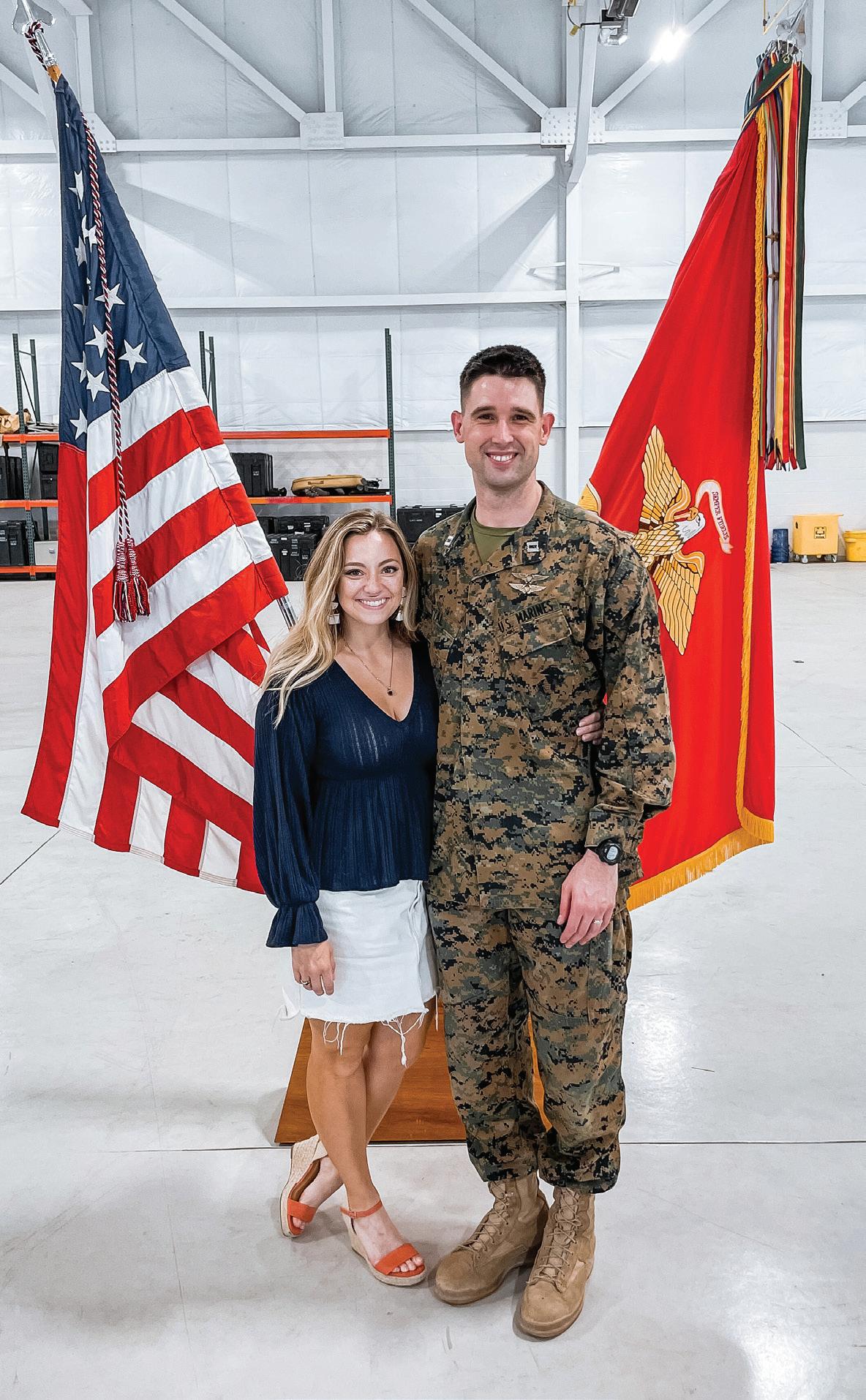
That sense of shared experience, Byal said, is vital. “When you’re on your third move in four years, and your spouse is gone for training or deployment, it’s easy to feel like you’re the only one barely keeping it together. But you’re not.”
She encourages other spouses to reach out to local groups, virtual communities, and available resources even when it feels awkward.
“Put yourself out there, even just a little,” she said. “One coffee date can turn into a lifelong friendship.”
So how does Byal stay grounded amid the chaos of military life?
“I’m a big believer in therapy,” she said. “Talking to someone who gets the military lifestyle or is just trained to listen can be incredibly validating.”
AFA offers a variety of scholarshps to help you achieve your goals.
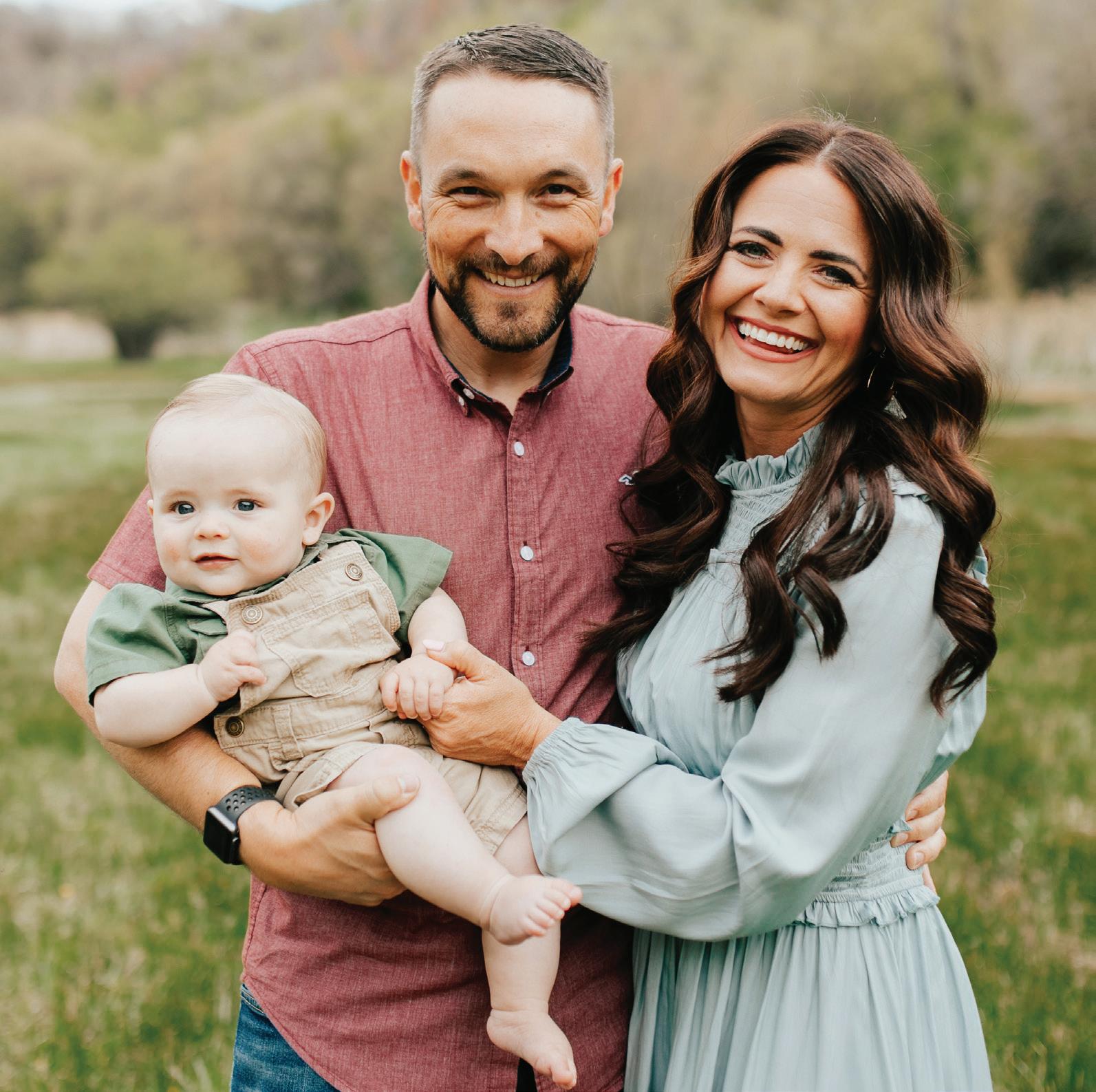

To find out more scan the code or go to www.afa.org/scholarships/
She also leans on routines, journaling, and giving herself permission to rest.
“You don’t have to fill every moment with productivity just because your spouse is away,” she said. “Rest is productive.”
And humor, lots of it.
“Sometimes you just have to laugh at the absurdity of this life sometimes,” she said.
When asked what she wishes every military spouse could hear, Byal doesn’t hesitate.
“You are not alone. Your feelings are valid. And asking for help is not a weakness, it’s the bravest thing you can do.”
Whether through heartfelt posts or humorous memes, The Short Wife continues to normalize the ups and downs of military spouse life and in doing so, helps others feel seen.
Byal’s transparency is a reminder that wellness isn’t about perfection. It’s about being honest, building connections, and giving ourselves grace.
Over half of the survey sample experienced some form of anxiety, and the most commonly reported symptoms included trouble relaxing and feeling nervous or anxious.
As Dr. Courtney Barber, Psychologist, Licensed Marriage and Family Therapist, and Space Force spouse, has experienced firsthand, the wellness of military families hinges on one powerful but often elusive element: connection.
“We’re this small subset of the national population, and many civilians are unable to understand the complexity of what we’re going through or what this voluntary commitment to service entails,” said Barber. “When that lack of understanding exists, it helps to further compound the stress military families feel and face.”
Barber, who has worked with military families for years through her practice, Barber Family Counseling & Wellness, noted a shifting culture across both civilian and military
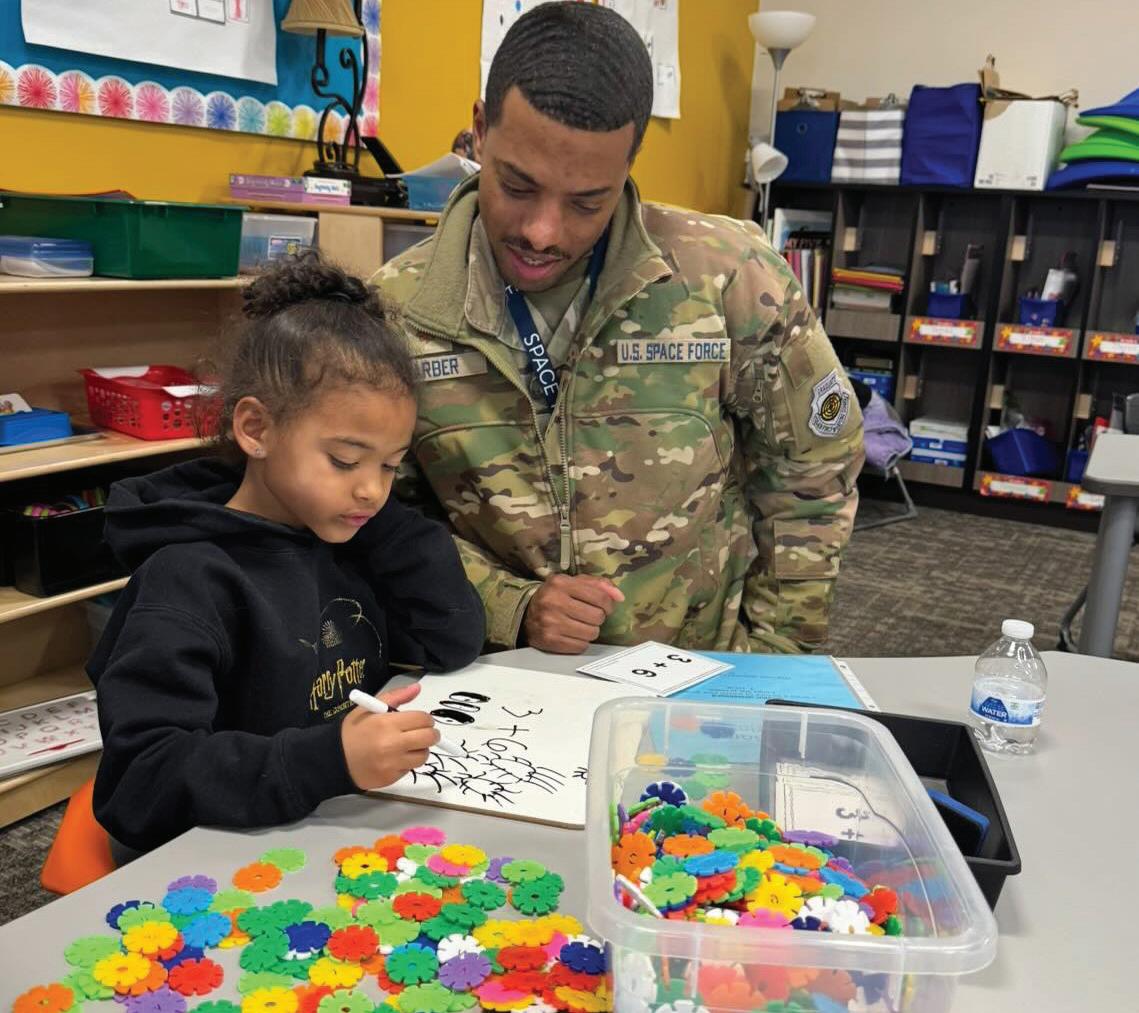
communities. She pointed to growing awareness and support for dependents through initiatives like Purple Star Schools, along with increased acceptance of mental health care and improved access to

services. Still, she believes a deeper systemic understanding from both the public and within military families and communities has yet to fully take hold.

“It’s a unique life,” said Barber. “We’re asking families, especially children, to do things that aren’t traditional or societal norms. That creates stress, isolation, and sometimes deep disconnection.”
One of Barber’s biggest concerns is how children internalize military stress, especially when they aren’t given space to process it.
“We tell them, ‘It’s going to be okay’, but we rarely ask how they feel,” she said. “Kids require validation, not vague reassurances. They need to hear that it’s okay to miss mom or dad. That it’s okay to be sad or angry.”
Barber, who grew up in a culture where resilience meant staying silent, now rejects that notion.
“Many of us have been taught to shove it down in the name of resilience. But resilience doesn’t mean suppression. It means adapting, surviving, and ideally, thriving. But we can’t thrive without acknowledging things that are difficult or hard times.”
She has observed the many ways children cope, particularly those who move often or go for long periods without a parent at home. Some children become social butterflies, making new friends easily. Others shut down, tired of investing in relationships that end with another PCS move.
When Air Force Spouse Kate Reimann PCS’d to Cape Charles, Va., she was juggling two young children and a husband recovering from cancer. The beach became a sanctuary. Until one afternoon, when the tide swept away their plastic toys.
“That moment hit me hard,” she said. “I thought, ‘Why are we bringing petroleum-based plastic to the ocean? Why are we daring to pollute the very thing we love?’”
It was a flashpoint in a broader journey Reimann has taken, one centered on environmental wellness, conscious consumption, and the rhythms of military life. While that moment eventually led her to launch Rogue Wave Toys,
“Some adapt well, some stop trying altogether, and some appear to handle life changes but are quietly struggling,” Barber said. “All of these responses are understandable. But it is our responsibility to pay attention and be ready to support. This can be even more difficult if the adult or adults themselves are also dealing with internal struggles.”
Military families live in a cycle of departure and return, distance and reunion. For Barber, the key to wellness isn’t pretending it’s easy. It’s committing to connection in every phase.
“This is a long-term lifestyle for most of us. It’s not just surviving deployments or a multitude of TDYs. It means choosing to intentionally reconnect after each one, even when it’s hard.”
That choice, she says, is what strengthens the family unit.
“Connection isn’t one conversation at dinner. It’s how we make each other feel seen, even when we can’t be in the same place. It’s in the honesty, the patience, and the understanding that we’re all doing our best in a life that asks a lot of us.”
And for military families, that kind of connection isn’t just important. It’s essential.
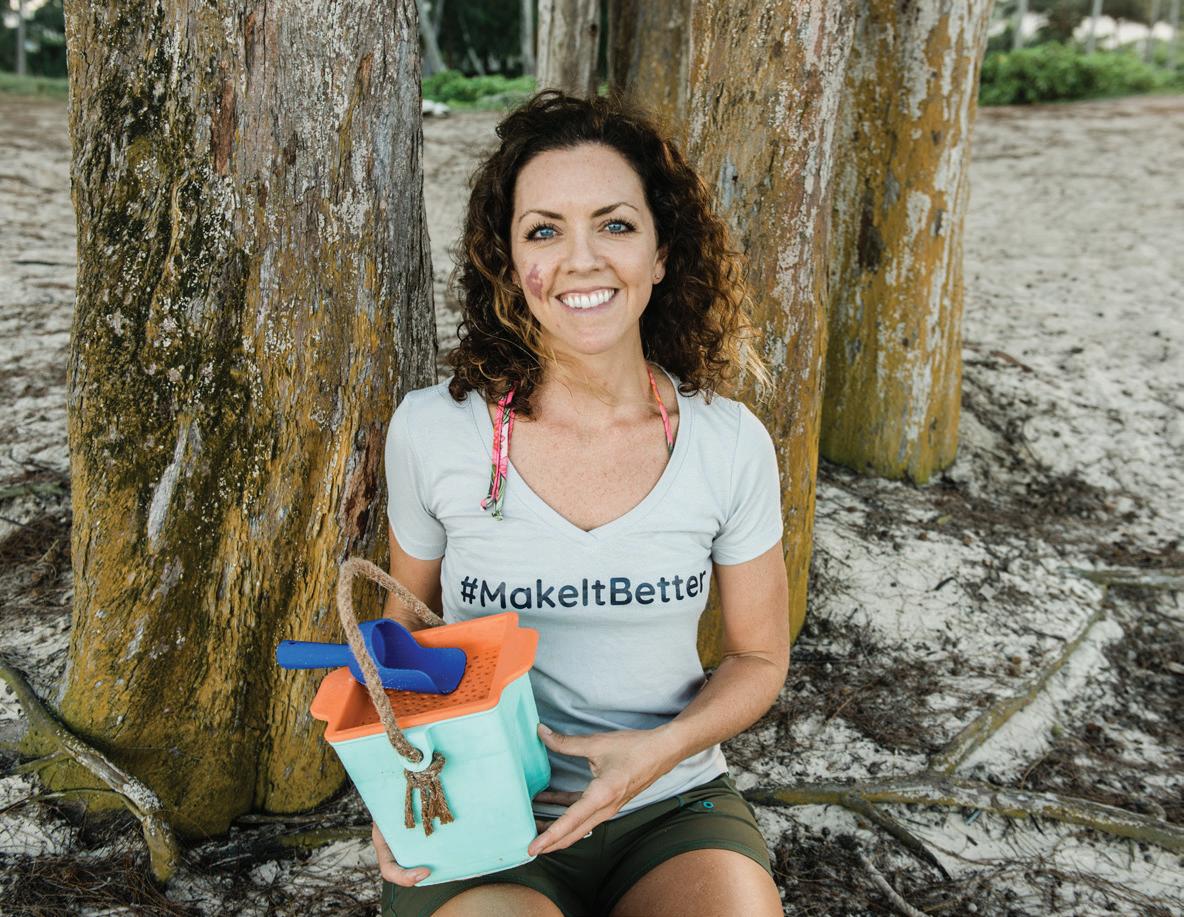
plant-based, 100% compostable products that Kate began 3D printing from her home in Hawaii, the heart of her work lies not in a single product but in a way of living.
“Environmental wellness isn’t about being perfect. It requires a willingness to show up, pay attention, and to try again.”
For Reimann, environmental wellness is a lifestyle, one that’s responsive, flexible, and valuesdriven. She encourages everyone to ask themself:
“How does this choice help or hurt my family? How does it impact my community — local, national, global?
“Everything from where we buy shampoo to how we think about packing up for a PCS, it all matters,” she said.
Her family shops in bulk, brings refillable containers to local zero-waste stores, skips produce bags, and uses an electric lawn mower. She’s honest about not being perfect. There are still plastic tubs from Costco in her pantry. But the goal is consistency, not purity.
“You don’t need a new identity to live more sustainably. You just need to start noticing.”
“We have to stop thinking that living sustainably is about perfection. It’s about persistence,” said Reimann. Military life, Reimann says, has shaped her sustainability journey in profound ways. Each new location brings new exposure: from learning about overfishing in Monterey Bay, Calif., to reef-safe sunscreen in Hawaii.
“Being part of the local community wherever we go has changed how we see the world,” she said. “We try to listen and learn, not just stay on base.”
When thinking about all that military moves brings, she imagines a world where PCS season includes reusable moving boxes and community-sharing systems — even if that reality is still out of reach.
“We live in this disposable mindset. But what if we planned differently together?” she asked.
Reimann is candid about the cultural pressures that shape military family life, especially for spouses. The influencer effect, she says, often drives overconsumption.
“Social media tells us we need the new leggings, the trendy cup, the perfect pantry,” she said. “But we’re being duped. It’s a trap.”
Instead, she shops curated thrift stores and supports circular brands like Patagonia and Girlfriend Collective. She encourages others to try resale platforms like Poshmark and to reframe buying as a long-term investment, not just a trend.
But sustainability isn’t just about stuff. It’s also about time.
“We’re all so busy,” Reimann said. “Sometimes it’s easier to grab packaged snacks or skip the workout. But we can reclaim our time. Even just eating together five nights a week has changed our family.”
As a military spouse, Reimann understands the challenge of building continuity in a life that’s always changing. But she believes environmental wellness offers an anchor not just for individuals, but for families and communities.
“People are people wherever you go,” she said. “We all want to be seen. We all want to matter. Living with intention in how we eat, what we buy, and where we volunteer helps us feel rooted, even when the rest of our lives are in motion.
» Shop intentionally — buy less, buy secondhand, and consider where it goes when you're done.
» Reduce plastic — skip the produce bags, buy in bulk, and opt for refillable containers.
» Get involved — join local cleanups or environmental nonprofits to root in your community.
» Cut the scroll — reclaim wasted time spent on social media for real-world tasks that matter.
» Build habits, not guilt — aim for progress, not perfection.
According to the InDependent and University of TexasAustin research, spouses reported the most satisfaction with spiritual wellness. The majority of spouses indicated that they felt their personal existence was “purposeful and meaningful,” and that they lived each day in a way that was consistent with their values.
“When spouses are spiritually grounded,” Corie Weathers, a licensed professional counselor, author, and military spouse said, “they are better equipped to handle the emotional roller coaster that comes with military life.”
Spiritual wellness involves finding purpose, maintaining hope and aligning with a sense of meaning often through faith, nature, community, or personal values. It serves as a stabilizing force when external circumstances feel chaotic.
“Spiritual wellness isn’t necessarily about religion, but connecting with something greater than yourself,” Weathers said. “It could be faith-based, or it could be a strong moral compass, meditation, or time in nature.”
Connecting with something greater than yourself could include volunteering with a local organization close to your heart or spending time practicing gratefulness during quiet moments.
For many military spouses, consistent spiritual practices help reduce anxiety and improve emotional regulation, particularly during periods of separation or uncertainty.
» Shared devotionals or meditations: Reading or reflecting together, even over distance.
» Gratitude practices: Encouraging each family member to share one thing they’re thankful for daily.
» Community involvement: Staying connected to supportive communities, spiritually or not, both locally and online.
Spouses reporting higher spiritual well-being also experience better mental health outcomes and relationship satisfaction.
Effective communication is another critical element of family wellness, especially in relationships strained by distance and high-stress environments. Weathers said poor communication patterns often stem from unmet expectations and emotional disconnection.
“One of the most common struggles I see is spouses trying to stay connected when one or both partners are emotionally overwhelmed,” she said. “The key is learning to name your emotions, set healthy boundaries and validate each other’s experiences.”
Military spouses are the heartbeat of resilience in their families. By nurturing spiritual wellness and honing communication skills, they can create a sense of stability and connection that transcends the challenges of service life.
“When the soul of the family is cared for, the whole family thrives,” Weathers said.
Whether through faith, community, or personal reflection, cultivating inner strength and honest communication is a gift not just for the individual, but for the entire military household.
» Practice intentional listening: Avoid multitasking during conversations and give your partner full attention.
» Use ‘I’ statements: Express feelings without assigning blame (e.g., “I feel anxious when I don’t know your schedule”).
» Schedule regular check-ins: Whether in-person or virtual, set aside time to reconnect emotionally and spiritually.
» Embrace conflict as growth: Disagreements are natural; approach them with curiosity rather than defensiveness.
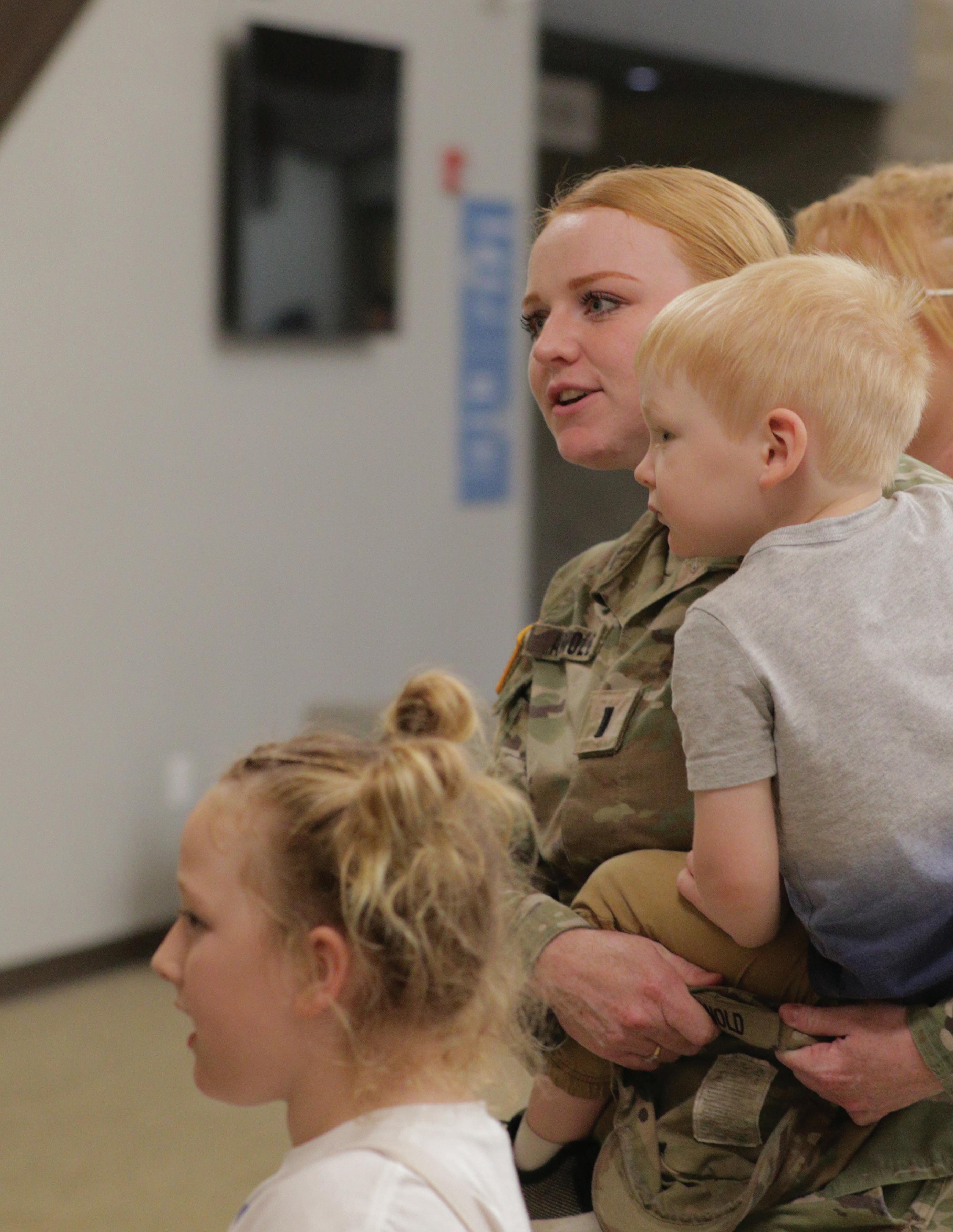
"I believe that the greatest gift you can give your family and the world is a healthy you."
-Joyce Meyer

We’re excited for you to join our AFA family! Supporting our Air Force family has been an important piece of AFA’s mission since our inception in 1946. More than 75 years later, we remain committed to supporting all DAF families. We believe that improving the quality of life for Airmen, Guardians, and their Families is directly linked to stronger Families, united Forces, and the mission effectiveness of our Air and Space Forces. By joining AFA, you are strengthening our united voice advocating for our DAF families. Here are a few ways your AFA membership will strengthen your leadership:


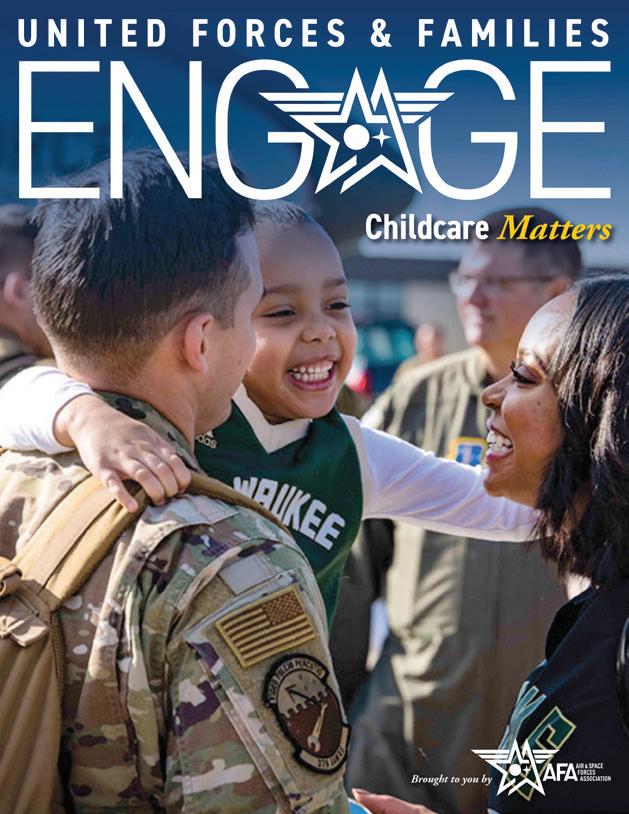

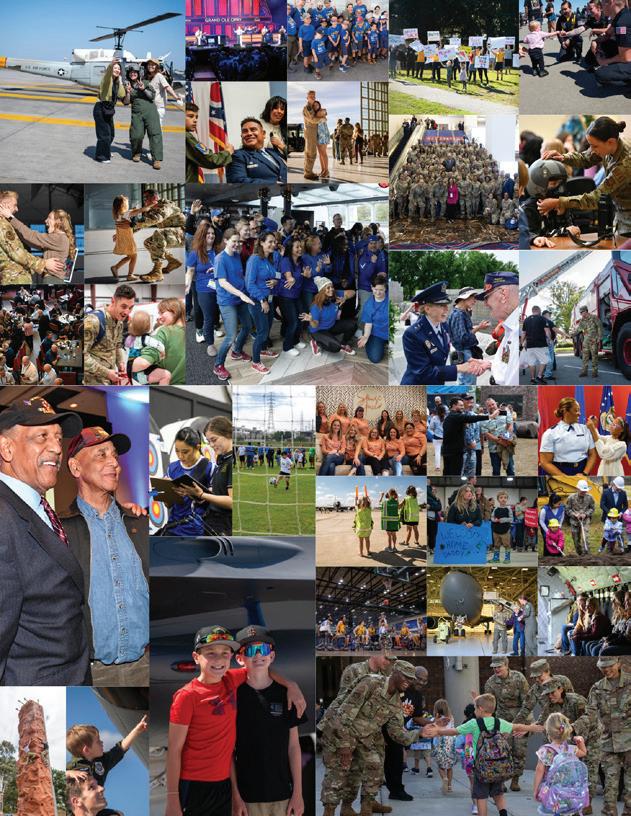
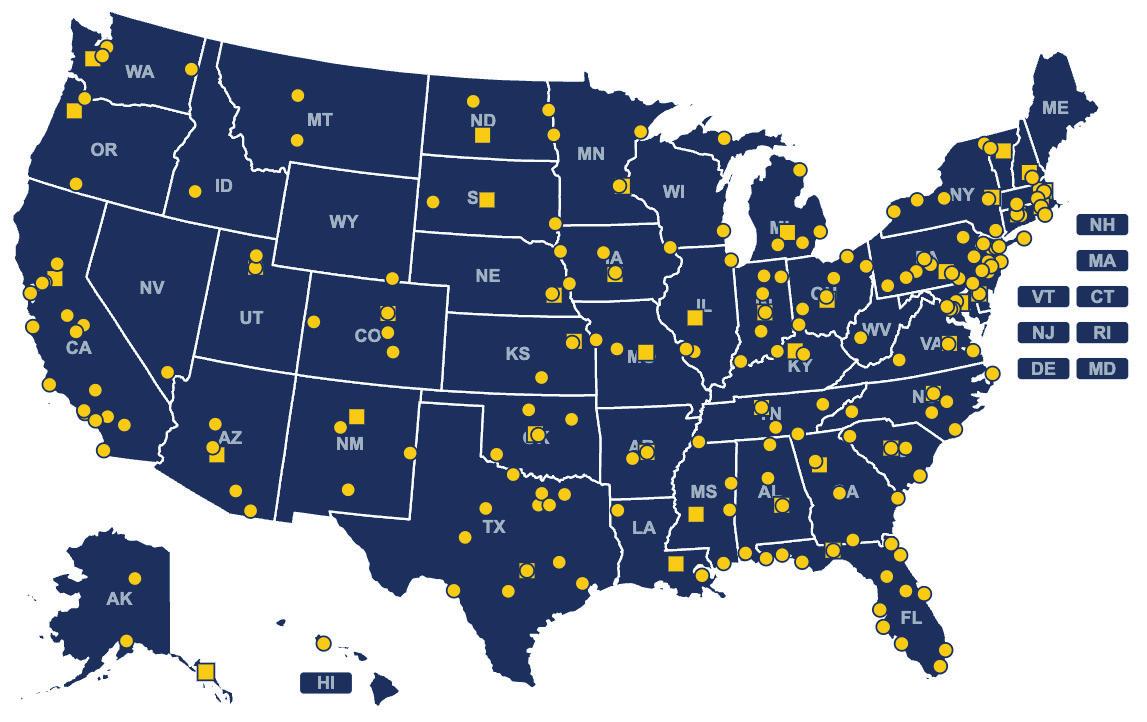

We have locations around the world, including three in the Pacific region, and five in the European region. To find your chapter on our interactive map, click the image to the left, or visit afa.org/field!
We hope you will join fellow AFA members, Airmen, Guardians, senior DAF leaders, and industry experts at some of AFA’s professional development opportunities. At events like our Air, Space & Cyber Conference and AFA Warfare Symposium, you will engage in rich discussion and gain unique insights into aerospace power, opportunities, and challenges for our Air Force, Space Force, Airmen, and Guardians.

@airandspaceforcesassociation

@afa_air_space
@air-space-forces-association

@afa_air_space www.AFA.org/F2

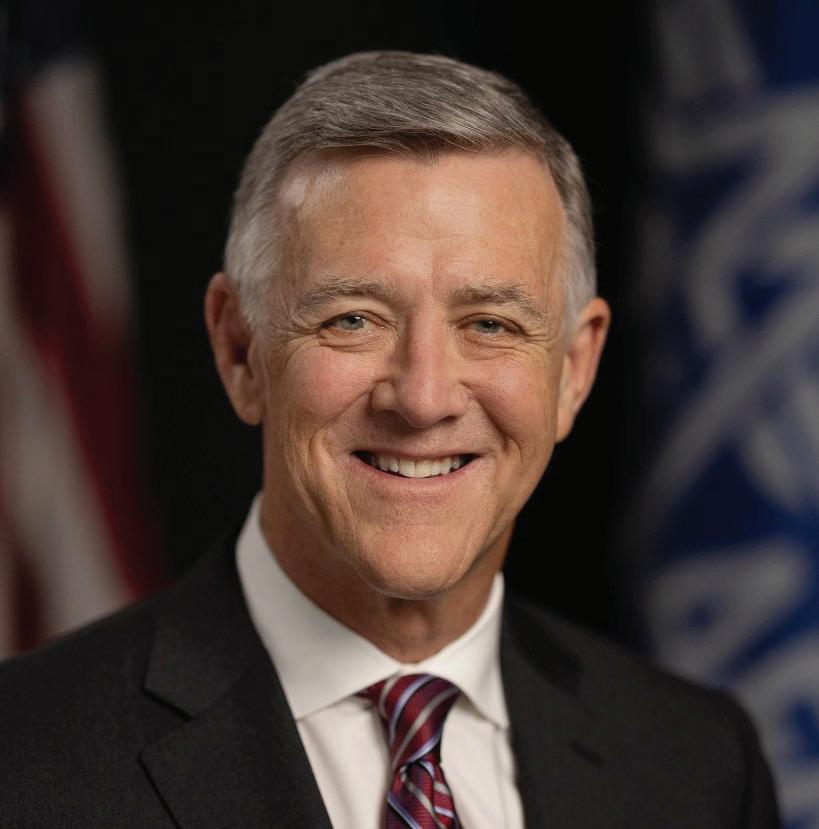
Lt. Gen. Burt Field, USAF (Ret.), is President and Chief Executive Officer of the Air & Space Forces Association, leading the Association’s professional staff in its mission to advocate, educate, and support the Air & Space Forces. As CEO, he oversees operations and resourcing for AFA and its 120,000+ members, including events, publications, and the Mitchell Institute for Aerospace Studies, the nation’s only think tank dedicated to air and space power.
A veteran of 35 years of Air Force service, Field retired from active duty in 2015 following his final tour, as Deputy Chief of Staff for Operations, Plans, and Requirements. Throughout his career, Field commanded a squadron, the Air Force Weapons School, three wings, a numbered Air Force, and a subunified command.
Following his retirement, he served as the Vice President of Strategic Planning for Lockheed Martin Aeronautics. Field graduated from the Air Force Academy in 1979 and earned a master’s degree in business administration from Golden Gate University in San Francisco. He and his wife, Lisa, have two sons, both officers in the USAF.
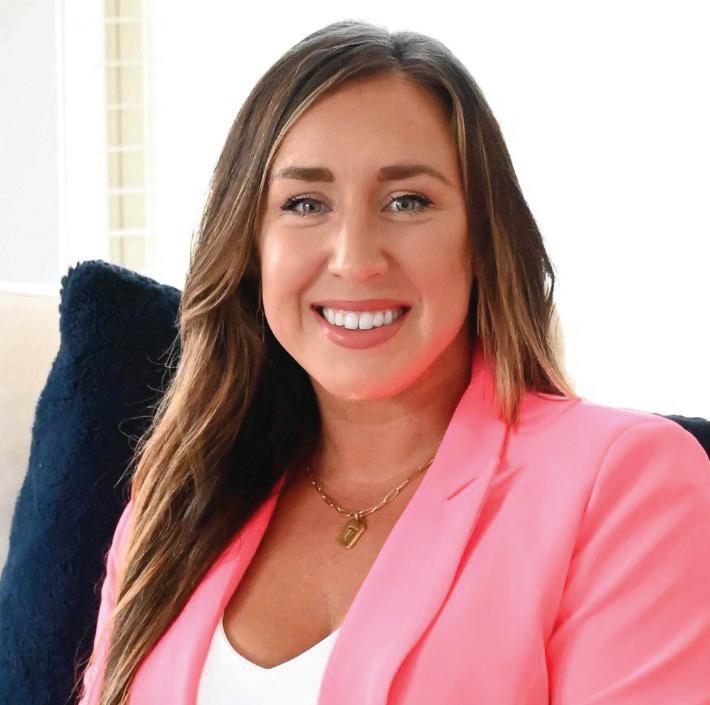

Lyndsey Akers is a highly-regarded marketing and communications executive with an extensive track record in cultivating and growing military-connected brands. Since launching Akers&Co in 2020, Lyndsey and her team have worked with dozens of startups, ecommerce businesses, non-profits, and various impact-focused companies. Lyndsey’s extensive professional experience spans Capitol Hill, corporate and entrepreneurial sectors. Today, Lyndsey coaches and consults for growing brands and businesses led by ambitious entrepreneurs.
AFA is a familiar home to Lyndsey as she served on AFA’s communications team for several years where she supported event marketing, social media, traditional PR and various program efforts for the association. She returned in 2022 as the elected chair of AFA’s United Forces & Families Task Force, a volunteer group of passionate military spouse advocates with the mission of advancing quality of life issues facing military families.
Organized chaos is the name of the game for Lyndsey and her Air Force husband these days as they continue curating wonderful experiences for their 5 year old daughter and 3 year old son. The Akers family is currently stationed at Hurlburt Field in the Florida Panhandle until Carolina calls them home following military service.
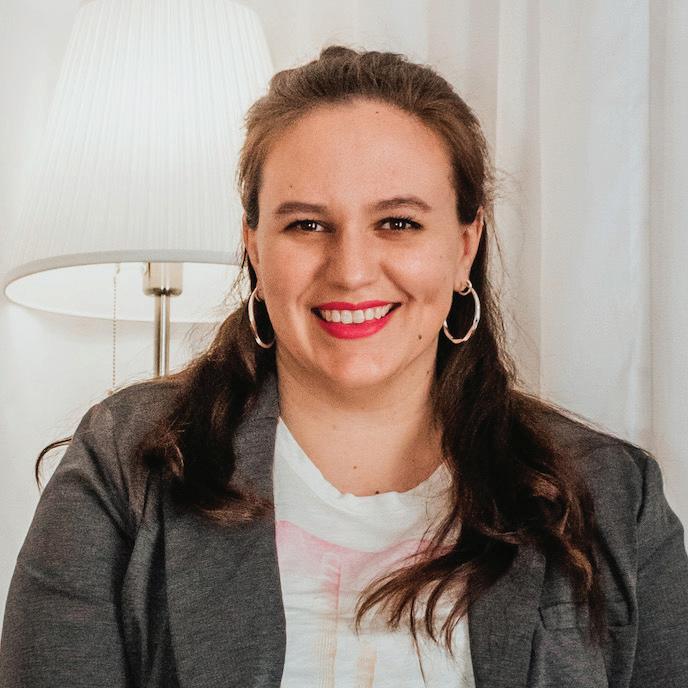

JemoyCreative.com @jemoycreative
Jenn founded Jemoy Creative in 2022 while working remotely from Europe for a full-service marketing agency - she got up every day at the crack of dawn to squeeze in a few hours of ‘her own thing’. She’s spent her entire 15+ year career working at print shops and marketing agencies, and has had her hands in practically every role - receptionist, account and project manager, creative director, operations director, and graphic designer.
Jenn is a difference maker for service-based business owners who are putting everything they’ve got into just making it. The difference is that she knows how to level up the marketing and design assets they’re using so they’re way beyond “good enough.”
She is a proud Army veteran, Army wife, and Navy brat - the military runs in her blood, and she fiercely supports the heroes of our country.
Away from work, Jenn is keeping busy! She can be found selling handsewn wares at craft shows, experimenting in the kitchen with scratch-made goodies, gardening, and reading. Whenever she can, she loves exploring and experiencing new places and cultures, and considers herself a language junkie, proudly able to get around and feed herself in 5 languages!

Find Savannah Online
savannahgstephens@gmail.com https://bit.ly/4g3PKCi Find Jenn Online
Savannah Stephens is a proud Air Force pilot wife, Reserve Public Affairs Officer, and a Department of the Air Force Civilian, currently serving as the Public Affairs Advisor for the 24th Special Operations Wing at Hurlburt Field, Florida.
Her journey started at the University of South Carolina, where she earned her Bachelor’s degree in Public Relations in 2016. After commissioning as a Public Affairs Officer through Air Force ROTC, she spent seven years on Active duty, completing three assignments, a deployment, and a master’s degree in Mass Communication from the University of Florida before transitioning to the Reserve.
She first found her love for AFA in 2015 as an intern in the communications department and at the Air Force Memorial.
When she’s not juggling work and military life, you’ll likely find Savannah listening to Taylor Swift, getting lost in a good book on her Kindle, or traveling with her family. She currently lives in Fort Walton Beach, Florida, with her husband, Drew, and their three little ones—Emersyn, Robert, and Caroline.
